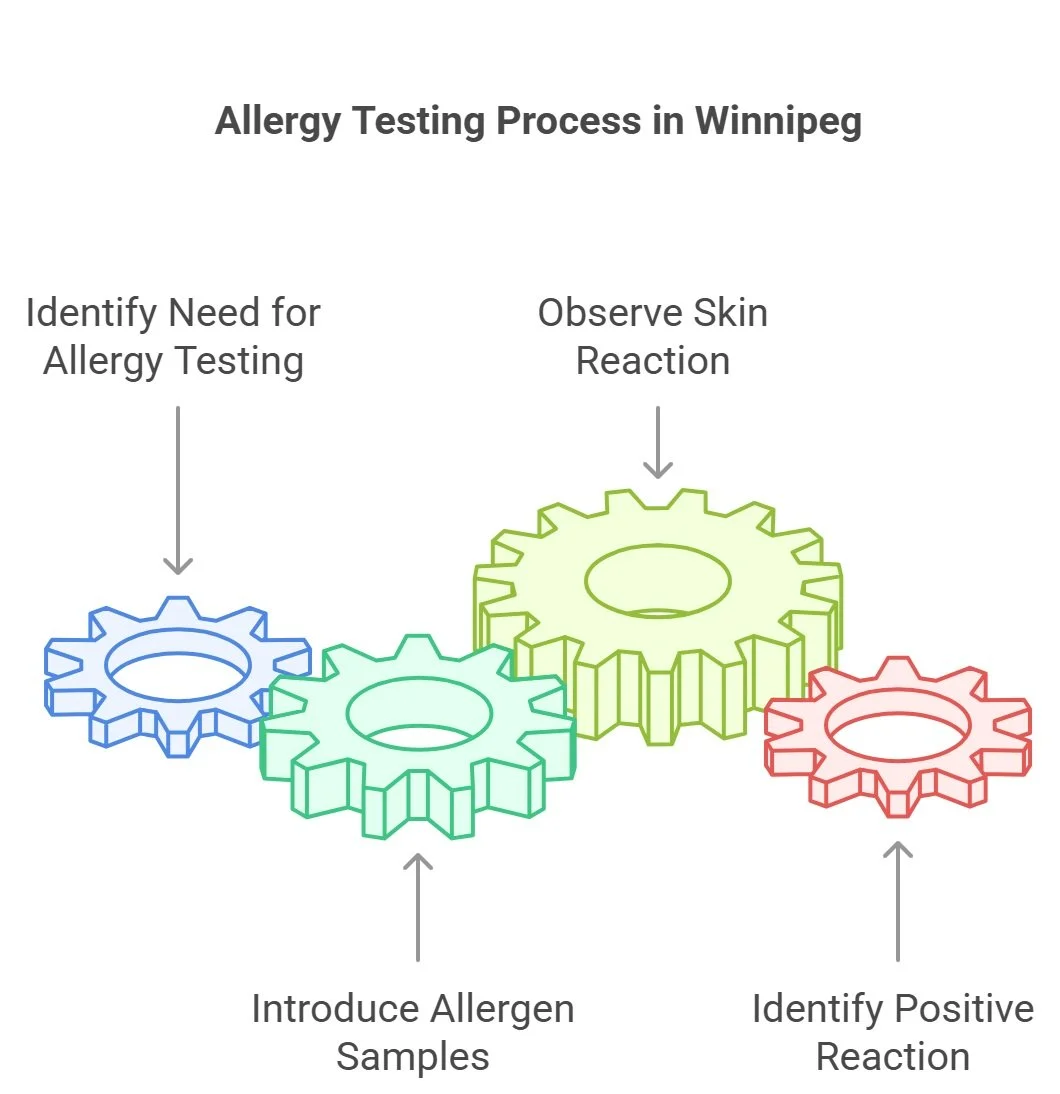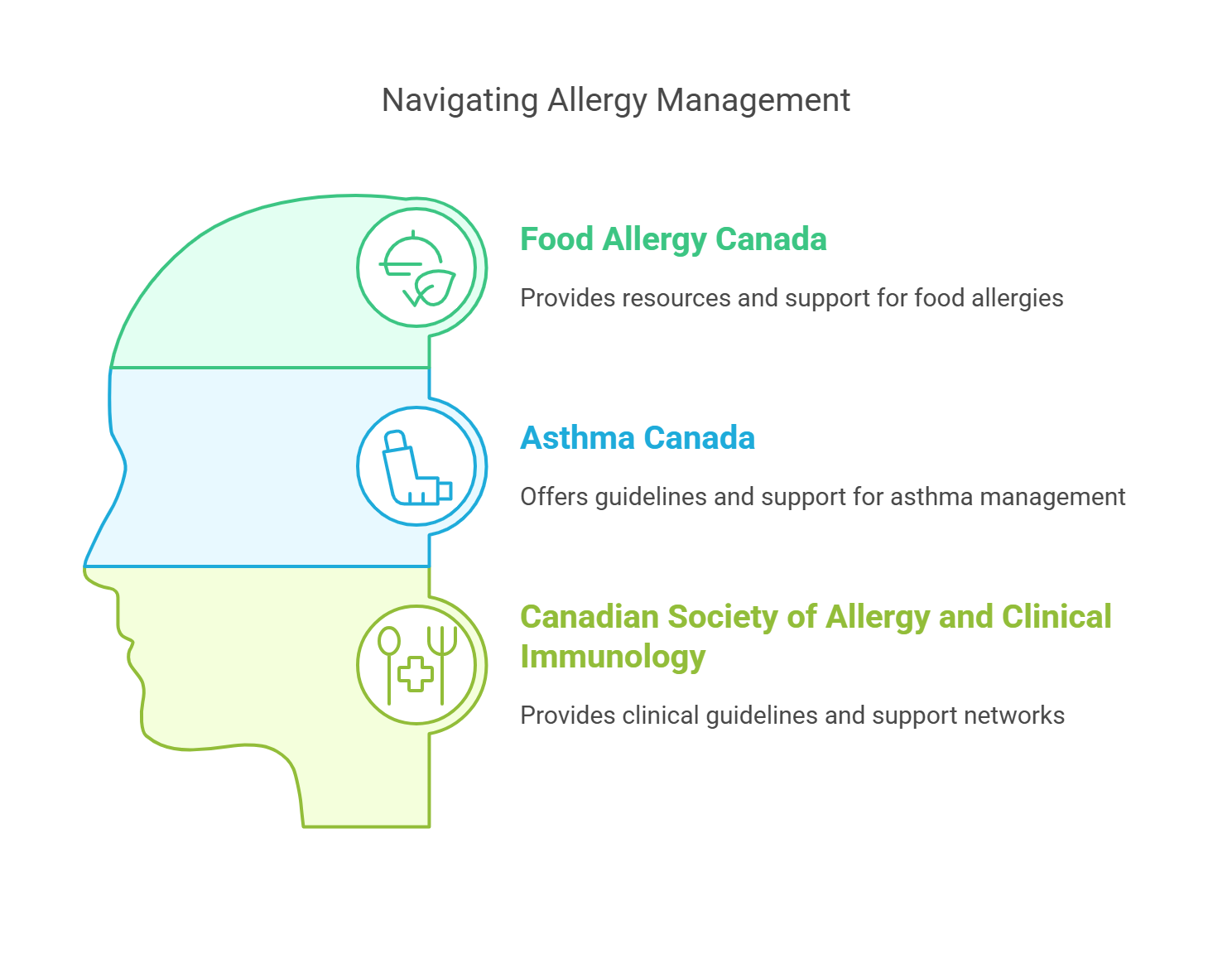Comprehensive Guide to Allergists in Winnipeg: What You Need to Know
Winnipeg’s unique climate and environment contribute to a variety of allergic conditions affecting its residents. From seasonal sniffles triggered by pollen to more severe reactions from food or environmental factors, allergies can significantly impact daily life. Understanding the role of allergy specialists is the first step towards effective management and relief.
Allergists are crucial healthcare professionals dedicated to the diagnosis and treatment of allergies, asthma, and immunologic disorders. They provide expert care, helping individuals identify their specific triggers and develop strategies to manage their symptoms, ultimately improving their overall well-being in the Winnipeg area.
What is an Allergist?
An allergist, also known as an allergist-immunologist, is a medical doctor who has completed specialized training in the field of allergy and immunology after finishing their medical residency. This extensive training equips them with the knowledge and skills to diagnose and treat conditions related to the immune system, particularly allergies and asthma.
These specialists manage a wide spectrum of conditions, including hay fever (allergic rhinitis), asthma, sinus infections, hives (urticaria), eczema (atopic dermatitis), food allergies, insect sting allergies, and certain immune deficiency disorders. Their expertise covers various allergic diseases and immune system responses, offering comprehensive care for patients of all ages.
“An allergist is a physician who specializes in the diagnosis and treatment of asthma and other allergic diseases.” -American College of Allergy, Asthma & Immunology
Common Allergies in Winnipeg
Winnipeg residents often contend with seasonal allergies, primarily due to pollens from trees, grasses, and weeds like ragweed, especially prevalent during spring, summer, and fall. Environmental allergens such as dust mites, mold spores, and pet dander are year-round concerns within homes and buildings.
Furthermore, food allergies are a significant issue, with common culprits including peanuts, tree nuts, milk, eggs, soy, wheat, fish, and shellfish. These allergies can cause reactions ranging from mild discomfort to life-threatening anaphylaxis, requiring careful management and dietary awareness. Exploring holistic nutrition can sometimes offer complementary support.
The impact of these allergies extends beyond mere physical symptoms; they can disrupt sleep, affect concentration at work or school, limit social activities, and lead to increased healthcare visits. Managing these conditions effectively is key to maintaining a good quality of life in Winnipeg.
“Top 10 foods that cause allergic reactions: Peanuts, Tree nuts, Wheat, Soy, Eggs, Sesame seeds, Mustard, Milk, Sulphites, Seafood” -Parenting in Manitoba
When to See an Allergist in Winnipeg
If you experience persistent symptoms like sneezing, nasal congestion, itchy eyes, coughing, wheezing, shortness of breath, skin rashes, hives, or digestive issues after eating certain foods, it may be time to consult an allergist. Symptoms that last for several weeks or months, or recur during specific seasons, strongly suggest an underlying allergy.
Ignoring chronic allergy symptoms can lead to complications such as sinus infections, ear infections, or worsening asthma. Moreover, the ongoing discomfort and limitations caused by allergies can significantly diminish your quality of life, making professional evaluation and treatment essential.
“If you feel like you’re always getting sick, with a cough or head congestion, it’s time to see an allergist.” -American College of Allergy, Asthma & Immunology
Allergy Testing in Winnipeg
Allergy testing is a fundamental step in identifying the specific substances (allergens) triggering your reactions. In Winnipeg, allergists commonly utilize skin prick tests, where tiny amounts of suspected allergens are introduced into the skin’s surface, usually on the forearm or back. A positive reaction typically involves localized redness and swelling, resembling a mosquito bite.
Blood tests (like IgE tests) are another option, measuring the level of specific allergy-causing antibodies in the bloodstream. These may be used if skin testing isn’t feasible due to skin conditions or certain medications. Sometimes patch testing is used for suspected contact dermatitis, often related to skin concerns.
During your visit for allergy testing, the allergist will first take a detailed medical history and perform a physical examination. The testing process itself is relatively quick, and results for skin tests are often available within 15-20 minutes, allowing the allergist to discuss findings and next steps during the same appointment.
“Skin tests are a tool that allergists use along with other information to come to a diagnosis.” -Food Allergy Canada
Treatment Options for Allergies in Winnipeg
Once allergies are diagnosed, Winnipeg allergists offer a range of treatment options tailored to the individual’s needs. Medications are often the first line of defense, including antihistamines (oral or nasal sprays), decongestants, nasal corticosteroids, and eye drops to relieve symptoms like sneezing, itching, and congestion.
For certain allergies, particularly environmental ones like pollen, dust mites, or insect stings, allergy shots (immunotherapy) may be recommended. This involves regular injections of gradually increasing doses of the allergen, helping the immune system build tolerance over time. Sublingual immunotherapy (tablets or drops under the tongue) is an alternative for some allergens. Additionally, simple lifestyle changes can significantly reduce exposure.
Allergists work closely with patients to develop personalized treatment plans. This involves identifying triggers, recommending avoidance strategies, prescribing appropriate medications, considering immunotherapy, and providing education on managing allergic reactions, including the use of epinephrine auto-injectors for severe allergies.
“Allergy treatments include: Staying away from allergy triggers, also known as avoidance. Medicines. Immunotherapy.” -Mayo Clinic
Specialized Allergy Services in Winnipeg
Winnipeg offers access to various specialized allergy services designed to address complex or specific allergic conditions. Some clinics may have dedicated programs for managing severe asthma, focusing on advanced therapies and comprehensive care plans for patients whose asthma is difficult to control.
Food allergy clinics provide specialized diagnosis, management, and education for patients with food allergies, including guidance on food challenges and emergency action plans. Additionally, services focusing on drug allergies, chronic urticaria (hives), and immunodeficiencies ensure that patients with diverse allergic and immunologic needs receive appropriate expert care within the city.
Managing Allergies at Home in Winnipeg
Effective allergy management often involves making adjustments within your home environment. Using allergen-proof covers on pillows and mattresses can reduce exposure to dust mites. Regularly cleaning and vacuuming (using a HEPA filter vacuum) helps minimize dust, pet dander, and other indoor allergens. Consider environmental controls like air purifiers.
Winnipeg’s distinct seasons require adaptive strategies. During high pollen seasons, keeping windows closed and using air conditioning can limit exposure. Monitoring pollen counts can help plan outdoor activities. In damp conditions, using dehumidifiers can help prevent mold growth, another common allergen trigger in many homes.
Allergies and Asthma in Winnipeg
There is a strong link between allergies and asthma, often referred to as allergic asthma. In many individuals, exposure to allergens like pollen, dust mites, mold, or pet dander can trigger asthma symptoms such as coughing, wheezing, chest tightness, and shortness of breath. Allergists in Winnipeg are skilled in diagnosing and managing both conditions concurrently.
Treatment for allergic asthma typically involves controlling both the underlying allergy and the asthma itself. This may include allergen avoidance, allergy medications, asthma controller inhalers (like inhaled corticosteroids), and potentially immunotherapy. Identifying and managing allergic triggers is a key component of effective asthma control for many Winnipeg residents.
“Asthma and allergies are related but they are not the same thing.” -Asthma Canada
Pediatric Allergy Care in Winnipeg
Allergies often develop in childhood, and early diagnosis and management are crucial for a child’s health and development. Pediatric allergy care in Winnipeg focuses on identifying allergies unique to children, such as food allergies (milk, egg, peanut) and eczema, as well as respiratory allergies and asthma.
Pediatric allergists use age-appropriate testing methods and develop treatment plans considering the child’s specific needs, including educating parents and caregivers on managing allergies at home and school. They provide guidance on introducing allergenic foods, managing anaphylaxis risk, and ensuring children can participate fully in daily activities despite their allergies.
Staying Informed About Allergies in Winnipeg
Keeping up-to-date with allergy information is important for effective self-management. Reputable organizations like Food Allergy Canada, Asthma Canada, and the Canadian Society of Allergy and Clinical Immunology offer valuable resources, guidelines, and support networks for patients and families dealing with allergies.
Local resources, including public health announcements regarding pollen counts or air quality advisories in Winnipeg, can also be helpful. Maintaining open communication with your allergist or healthcare provider ensures you receive the latest information on treatment options and management strategies tailored to your specific condition.
FAQ
How long does it take to get an appointment with an allergist in Winnipeg?
Wait times can vary depending on the clinic and the urgency of the referral. It’s best to contact clinics directly or ask your referring physician for estimated timelines.
Are allergy shots covered by Manitoba Health?
The cost of the allergen extracts used in allergy shots is often covered by Manitoba Health or private insurance plans, but there might be associated clinic fees for administration. Check with your insurance provider and the allergist’s clinic for specific coverage details.
Can allergists in Winnipeg diagnose food allergies?
Yes, allergists are experts in diagnosing food allergies using a combination of medical history, skin prick tests, blood tests, and sometimes oral food challenges conducted in a controlled setting.
What should I bring to my first allergist appointment in Winnipeg?
Bring your Manitoba Health card, a list of current medications (including over-the-counter ones), details about your symptoms (when they started, what triggers them), any previous allergy test results, and your referral letter if you have one.
Do I need a referral to see an allergist in Winnipeg?
Generally, yes. Most allergists in Manitoba require a referral from a family physician or another specialist to ensure the consultation is medically necessary and covered by provincial health insurance.
Conclusion
Navigating allergies in Winnipeg requires understanding your triggers and seeking appropriate medical care. Allergists play a vital role, offering specialized testing, diagnosis, and personalized treatment plans that range from medication and avoidance strategies to immunotherapy.
Whether dealing with seasonal sniffles, food sensitivities, asthma, or other allergic conditions, consulting an allergist can provide clarity and effective management strategies. Don’t let allergies control your life; professional help is available to improve your symptoms and overall well-being.
For more information on holistic approaches to allergy care and wellness or to explore comprehensive health services including naturopathic medicine and holistic nutrition support in Winnipeg, please visit The Nature Doctors or contact us to discuss your health needs.





